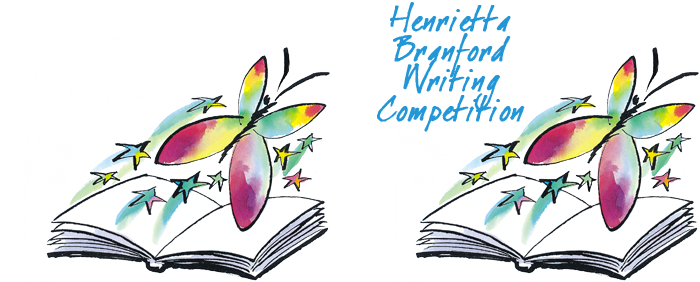Q&A with Emma Smith-Barton
 What was the inspiration for The Million Pieces of Neena Gill?
What was the inspiration for The Million Pieces of Neena Gill?
I was inspired to write the novel after someone close to me had a psychotic breakdown. I looked after them during that time and it was such a difficult thing for them to go through but it was made somewhat easier by good support. But there was also a lot of stigma, so I really wanted to challenge that. My character, Neena, is an ordinary teenager going through an extraordinary time after her brother disappears. That was important to me as I wanted to show that this can happen to anyone, to increase awareness, but also to show that there is hope for anyone going through a difficult time. To give the message to the reader that they are not alone, that they should never give up.
I hadn’t read any YA books about psychosis so it felt like a risk but even more important because of that – I taught in secondary schools for years and feel very passionate about increasing awareness of mental health in teenagers. I wasn’t sure if anyone would publish it – especially as my main character is from a minority ethnic background and I didn’t see many people like me publishing books – but I knew I had to write it. So I was thrilled when Naomi said she loved the book!
As a debut author, what did you find most challenging about writing the book?
Lots of things! But the thing I found the most challenging as a debut author was knowing what to cut and what to keep. It’s not always easy to kill your darlings, especially in the beginning! That fine balance between giving enough information to immerse the reader into the character’s world but not so much that it disrupts the flow of the story. This was definitely something that Naomi helped me to learn and it’s become so much easier with time. As my character’s mental health spirals throughout the novel, it was sometimes tricky to show that, to really keep the reader with her, and it was tempting to overwrite those parts. Naomi taught me that less is more. I was also drawing on my own experience of anxiety in my early twenties and I don’t think I could’ve written this story without that knowledge and insight – but it also meant that I had to keep stopping and checking that the details were also relevant to Neena’s story. If they weren’t true to Neena, I would cut. If they were, I would keep.
What was the thing you most enjoyed about working with Naomi on the book? Why?
The thing I enjoyed most about working with Naomi was that she was just as passionate about the book and subject matter as I was. That felt so important. It gave me so much confidence and made it such a nurturing experience – I could go to her with any questions or concerns or doubts and I knew I was in good hands. That made so much difference and I’ll always be so grateful to Naomi for her passion and enthusiasm for Neena.
What was the best bit of advice she gave you?
To make sure every chapter takes the story forward. I had to lose a couple of whole chapters during the editing process and at first I was reluctant (or should I say devastated!) – but of course Naomi was right and I learned so much about storytelling though this advice. Once I saw what a difference it made I was able to spot it myself and did a lot of cutting myself too! I think it really helped sharpen the story and keep the tension going.
What advice would you give to debut authors?
Write the story that truly matters to you; the one that only you can tell. If you don’t tell it, no one will. Do it for yourself but also do it for others like you, so that they may see themselves reflected. Your voice matters!
Q&A with Naomi Colthurst
 What most excited you about Emma’s manuscript when you first read it?
What most excited you about Emma’s manuscript when you first read it?
Emma’s novel is such a powerful portrait of grief and disintegrating mental health – but it’s also firmly one of hope and love, and about how each of us is stronger than we think. I loved that Neena’s recovery was just as much of an important part of the story as her spiral into psychosis –rather than offering a simple narrative ‘quick fix’ at the end, Emma made sure readers were given plenty of time to see how slow and careful recovery from a mental health episode can be, and what challenges can arise. Knowing that the story was partially based on Emma’s own real-life experiences made it all the more special, too.
What is special about the audience for YA books like Emma’s? Are there particular things you bear in mind when editing a book like this?
Both Emma and I wanted the book to reach, reassure and resonate with readers who had been through similar experiences to Neena, but we also wanted the narrative to create an empathy bridge with readers who might have had very little experience with mental health issues – specifically with psychosis, which is very misunderstood. This meant we had to make sure we represented Neena’s mental health issues in a way which was realistic and responsible – but also satisfying and engaging as a reading experience. For example, when your protagonist is suffering from suffocating, paranoid, looping thoughts, you have to work quite hard to balance portraying the symptoms correctly, whilst also making sure it doesn’t read repetitively. This did prove quite a challenge at times, but Emma did a brilliant job of it, and I’ve been so delighted to see the feedback from readers telling us how realistic Neena’s condition felt, and how they themselves felt better educated about ways to help someone going through something similar.
What would you say are the qualities of Emma’s writing that mark her out as a talent to watch?
Emma is a hugely emotive writer – her story is so powerful because she creates scenes and characters which feel incredibly real, which is all thanks to Emma’s fantastic skill at pulling on your emotional heartstrings. It makes her able to tackle big, complicated issues in a way that feels accessible and vital, which is not a skill that everyone has.
What do you think is the most effective scene in The Million Pieces of Neena Gill and why?
I have a real soft spot for the scene in chapter 34 where – without giving away any spoilers! – Neena and her mum have a properly honest conversation about what’s gone on, and why Neena felt she had to lie to her parents. It’s moment of such love and healing, and after everything that’s happened to Neena, makes you feel so reassured that everything will be OK.
What advice would you give to debut authors wanting to write YA?
Don’t be put off by the headlines! Yes, YA is having a commercially hard time in the market at the moment but it’s still an incredibly important area of fiction and one that publishers are continuing to invest in. I’ve always loved YA books and the extraordinary coming-of-age stories you find within their pages, and just wish I’d had half the stories that are available now when I was growing up.
The Million Pieces of Neena Gill is published by Penguin, 978-0241363317, £7.99 pbk.



